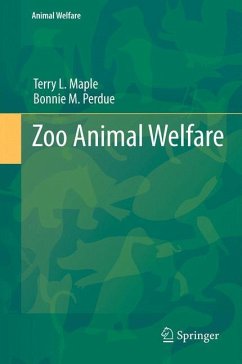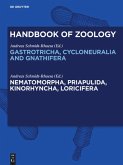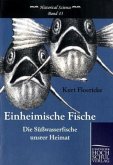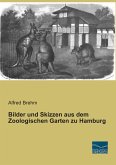Zoo Animal Welfare thoroughly reviews the scientific literature on the welfare of zoo and aquarium animals. Maple and Perdue draw from the senior author's 24 years of experience as a zoo executive and international leader in the field of zoo biology. The authors' academic training in the interdisciplinary field of psychobiology provides a unique perspective for evaluating the ethics, practices, and standards of modern zoos and aquariums. The book offers a blueprint for the implementation of welfare measures and an objective rationale for their widespread use. Recognizing the great potential of zoos, the authors have written an inspirational book to guide the strategic vision of superior, welfare-oriented institutions. The authors speak directly to caretakers working on the front lines of zoo management, and to the decision-makers responsible for elevating the priority of animal welfare in their respective zoo. In great detail, Maple and Perdue demonstrate how zoos and aquariums canbe designed to achieve optimal standards of welfare and wellness.
From the reviews:
"In 'Zoo Animal Welfare', Maple and Perdue explore the ethics, practices and standards of modern zoos by incorporating medical, psychological, biological and scientific information that is essential to advancing animal welfare. ... This book is an inspiring reference guide that demonstrates how to improve results in the field of animal welfare in zoos." (Kara Chirgwin and Monika Fiby, zoolex.org, May, 2014)
"The authors believe that good zoos give maximum value for animals, visitors, and even conservation. ... the book shows imaginative and appropriate physical designs, such as a series of pools for hippos and trees or tunnels for snakes. Blending principles and demonstrations, Maple and Perdue clearly illustrate how to make zoos good places for captive animals to live and for people to visit. Summing Up: Recommended. Animal studies collections, upper-division undergraduates and above." (J. A. Mather, Choice, Vol. 51 (3), November, 2013)
"In 'Zoo Animal Welfare', Maple and Perdue explore the ethics, practices and standards of modern zoos by incorporating medical, psychological, biological and scientific information that is essential to advancing animal welfare. ... This book is an inspiring reference guide that demonstrates how to improve results in the field of animal welfare in zoos." (Kara Chirgwin and Monika Fiby, zoolex.org, May, 2014)
"The authors believe that good zoos give maximum value for animals, visitors, and even conservation. ... the book shows imaginative and appropriate physical designs, such as a series of pools for hippos and trees or tunnels for snakes. Blending principles and demonstrations, Maple and Perdue clearly illustrate how to make zoos good places for captive animals to live and for people to visit. Summing Up: Recommended. Animal studies collections, upper-division undergraduates and above." (J. A. Mather, Choice, Vol. 51 (3), November, 2013)









